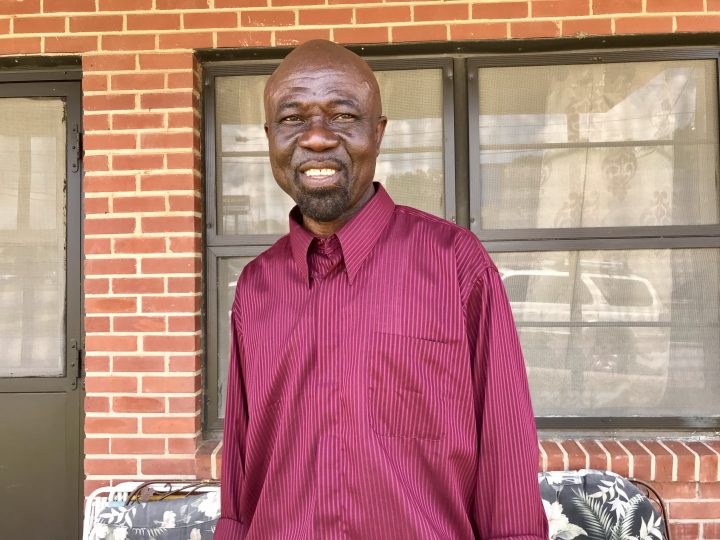
Liberian, American, and (after Friday) Master of Public Administration
Paul Yarwaye fled the violence of the Civil War that began 40 years ago in his native country of Liberia, the West African nation with deep historical and cultural ties to the Chattahoochee Valley.
On May 17, Paul turns 59.
On May 18, the United States citizen will graduate from Columbus State University with a Master of Public Administration in Health Sciences degree.
Next, Yarwaye plans to create a nonprofit organization dedicated to creating clean drinking-water sources in Africa.
What brought you to Columbus, Georgia?
“I’m originally from LIberia, in West Africa. That’s where I was born. But then, we had a civil war.
The war started in 1989 and things were getting bad off. No food. No good drinking water. People were killing other people for nothing. Innocent people.
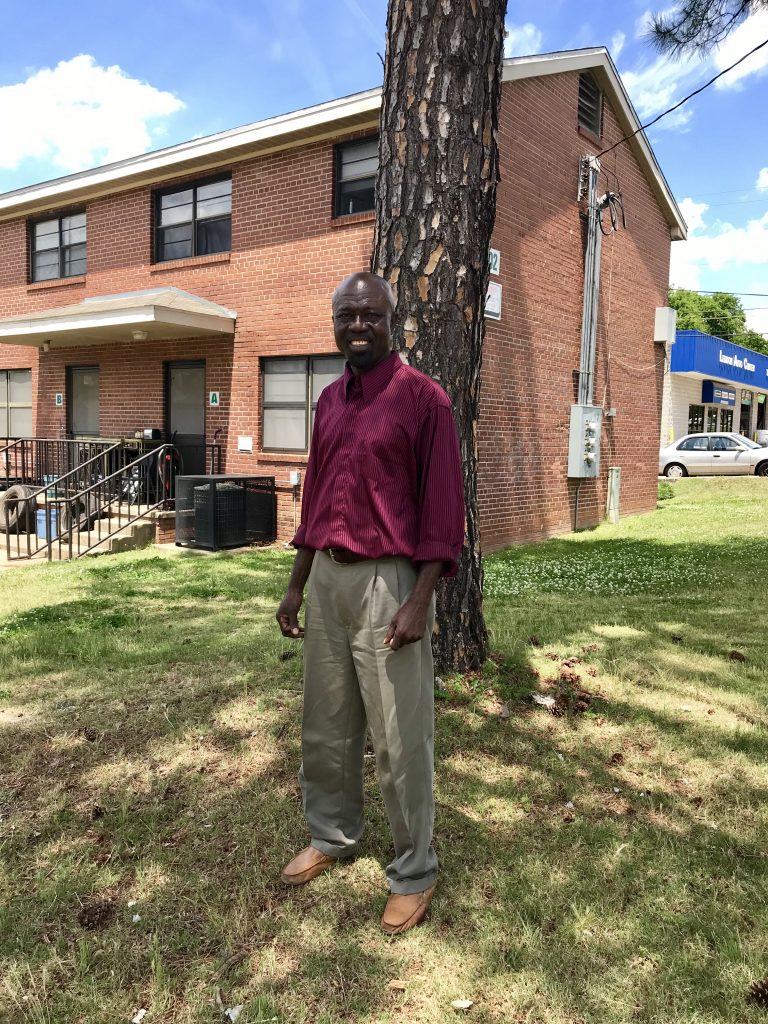
5.12.2019
So we had to leave and travel to another country for refuge. I was happy to be one of those with my family. We moved to Ghana, where we lived for six years before coming to America.”
Was Columbus your first stop after coming to America?
“Yes, Columbus was my first stop. And Columbus is where we settled because the person that filed my paperwork lives here. And that person is my older sister.
Her name is Benita Bloh Kangar. She had married a military man and, though they divorced and he left, she stayed. She is the reason we settled here.”
Most people around town have no idea about your journey here. They simply know you as the friendly face working at the Publix on Macon Road.
“That’s exactly right. [laughs] That’s how I met Matt [McDaniel, local historian at work on a documentary focused on Liberia/Chattahoochee Valley connections]. He always goes there to buy his stuff.
I’ve been working there at Publix for almost 5 years now.”
Everybody interviewed in Matt’s Azilia Films documentary keep calling you a hero. Why is that?
“It’s because I am a guy who is purposeful. I came here with a plan.
I know that America is a place where you do what you want to do. So I came with positive action. I first planned to seek education. And when I’m educated, I decided, then I’m going to take a step to solve problem in Africa. That was my plan.
That’s what I‘m still working on. I’m at the point now of getting my Master’s degree. Then after that, I’ll start a nonprofit. Then I’ll raise some funds and take the nonprofit to Africa to solve problem.”
The problem of contaminated drinking water?
“Yes. That is very, very important.
Where I was born and grew up, we have problem with drinking water. A lot of people die, especially young children. The water gave people bacteria; it gave people cholera. And then they die. I saw people die right in front of my eyes all of the time.
We grew up with missionaries. They taught us to boil the water. They told us that is the safest way to drink it; that if you boil it first, then the water will be fine. That’s what my father made us do. That’s why I was able to survive.
So when I get here, that’s in the back of my mind. I think, ‘I can go back and solve that problem.’ Which is not really hard. Just filter the water. Or process the water in a way that the bacterial will go away and the water is safe to drink.
That’s why I chose to study health sciences—so I have a broad idea about it.
On top of the water problem, you also have scarcity of food. So I want to go and grow crops, too. Food crops. That is my goal.”
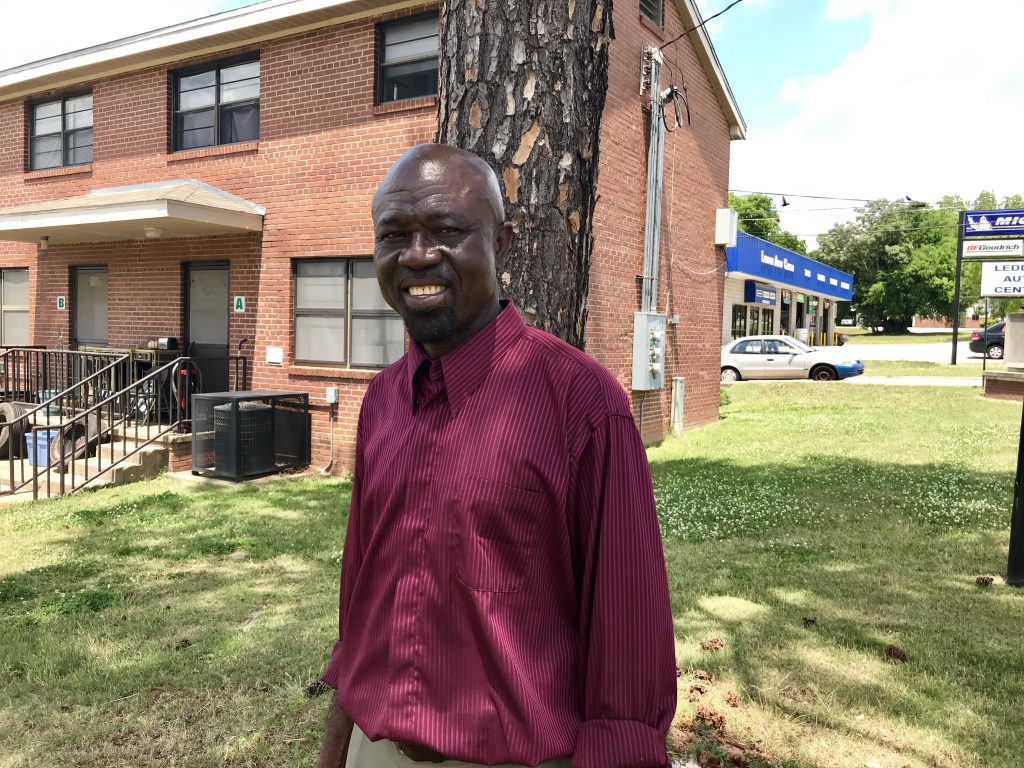
How was your childhood?
“I was fortunate. My father came from 30 mile distance away from his hometown to where I was born. He moved to a missionary station where there were missionaries from United States, England, Canada. They pulled themselves together and created Liberian Inland Station.
They established a mission station where they built a clinic, a school, and a church. My father went there and learned to read and write. After that, the missionaries saw that he was a guy who was talented. They used him as a handyman.
So I grew up with missionaries. I gave my life to the Lord and became a Christian.
After sixth grade, I moved to another mission station to complete my secondary education at a school established by the same group of people.”
Do you have a church home in Columbus?
“I go to St. Luke [United Methodist Church]. I go to St Luke purposefully because when I got here, there was no place for me.
My sister was trying to find me an apartment when I first came here when she took us to St. Luke and they embraced us. They gave us a place to stay. They gave us food. They gave us clothes. They gave us everything. Fed us six months while we found jobs and got on our own.
So I started going to church there. I still go to St. Luke. I am so happy and so grateful to go there, where I serve as an usher.”
What’s the Liberian community like in Columbus?
“A lot of Liberians are not living here. I think my family and another family are the only two families that I know live in Columbus. When you go outside of Columbus—Atlanta and other places—you find a huge community of Liberians. Especially in Atlanta.
But there are a lot of historical ties between Columbus and Liberia.
“Exactly so. The film that Matt is working on opened my eyes to Liberia having close connection ties to Columbus.”
You didn’t know that before the film?
“No , i didn’t know. From Matt, I learned people—about 500 of them from Eufaula, Columbus, and all the towns around here—left from here and went to Liberia on a ship from South Carolina.”
Do you plan on moving back to Liberia after graduation?
“Not immediately. But it is my home. I miss my home. But I find it comfortable here.
In Africa, the condition there are bad with the government not helping people. The government does not give the opportunity to even go to school. The government does not empower people to do what they are supposed to do.
When I got here, I realized, ‘Well this is completely different.You can go to school and find jobs and all of that.’ And so I made this my home. That’s how I make my way to citizenship.
But Liberia is my original home. Therefore, I will go back there. To become a mentor. To be able to advise the young people to seek education. And also to solve the water problem.
I have to do that project here and take that back over there. So we can have clean drinking water. And food in abundance. That is my goal.”
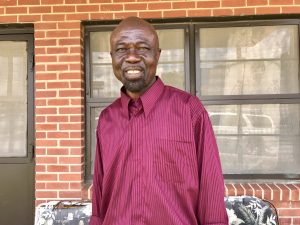
Family: “I brought my family from Africa and there are here with me. My wife and I have five children. My daughter is still there. The civil war is ongoing. When the embassy and missionary station get done with her paperwork, then she will join us.”
Education: B.S. in Health Science, Master of Public Administration in Health Services, Columbus State University
Best thing about Columbus, Georgia: “The friendly atmosphere. The city is clean. The people are so nice, people smile when they talk to you. I love Columbus.”
Worst thing about Columbus, Georgia: “What I really don’t like about Columbus is that every now and then a shooting somewhere. In Africa it’s not like that. But here people kill each other and it’s very common. I don’t like that.”
Best thing about Liberia: “It is beautiful how it is situated along the coastline.
And Liberia was built on a portrait of America. The culture is almost the same, we speak English. The constitution is based on the constitution here. The flag is the same. Liberia is a very good place to be.”
Worst thing about Liberia: “The problem we have in Liberia is the government.”
Person you admire the most: “Dustin Worsley [Assistant Dean of Students, Adult Re-Entry Coordinator] at Columbus State University. He’s the one that put me on good ground to start my four-year degree. He advised me correctly and helped me get on course to graduate.
He also showed me the way to bring my family here. I am a low-wage earner; I had no way to pay the money to get my family to Columbus. But then he showed me where to apply for funds and then I was able to get money to bring my family over.
Dustin is very important to me for the direction he helped give my life. ”
Secret to success: “A secret to success for me is to set goals and to work toward that goal. I set a goal and I pursue the goal. That is very, very important in where you want to go.”
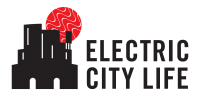
Paul was a student of mine at Columbus Technical College. He is a beautiful soul and I am so proud of him.
Thank you for reading ECL, Alicia.Your are spot-o correct about Paul – a wonderful asset to our community.
Best regards,
Frank Etheridge
Editor